Some GOP Senate hopefuls betting on Trump's immigration gamble
GOP candidates from West Virginia to Wisconsin are pinning blame on Democrats.
As President Trump moved Wednesday to quell concerns over the ongoing crisis surrounding the separation of immigrant children from their parents at the U.S.-Mexico border, Republicans vying for U.S. Senate seats across the country are digging in on their support for the president, and instead are trying to cast the blame for the situation on their Democratic opponents.
Republican candidates in competitive races around the country have mostly steered clear of direct criticism of the Trump White House, and are making congressional gridlock the proverbial boogeyman at the center of the growing political and humanitarian crisis at the border.
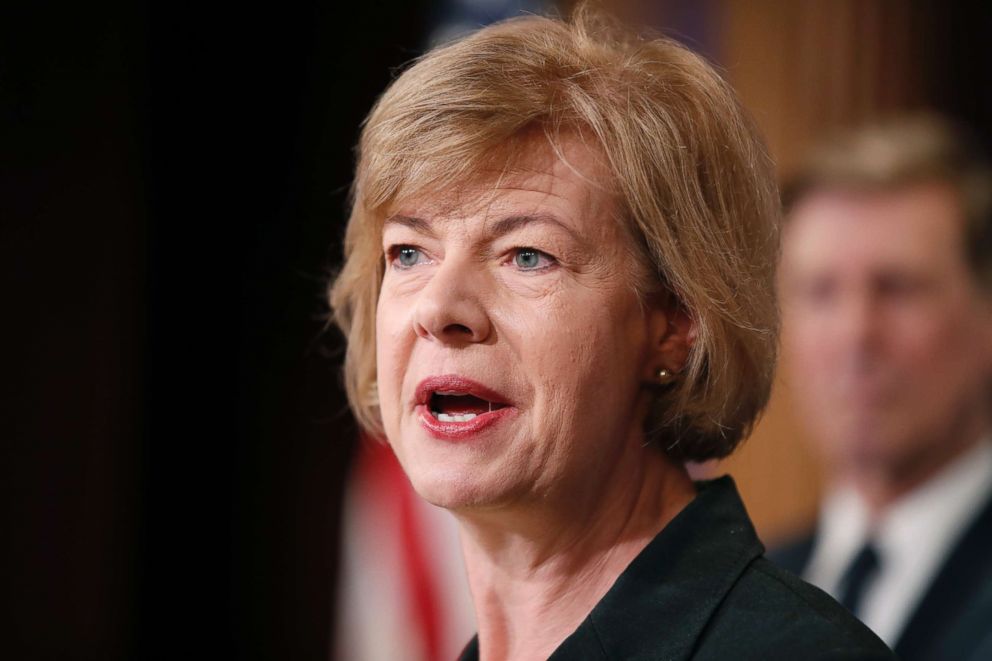
The strategy is yet another reminder of President Donald Trump's constant presence in some of the most contentious and important races in the first major election since his inauguration, where his party's majorities in both the U.S. House and U.S. Senate are at risk.
On Wednesday President Trump, who met with congressional Republicans Tuesday night in an attempt to corral support for a legislative solution to the crisis, signed an executive order he claims will address the problem of family separation at the border while maintaining aggressive border security.
"I didn't like the sight or the feeling of families being separated," Trump said at the White House Wednesday, "It's about keeping families together while at the same time making sure we have a very strong, secure border."
President Trump added that the executive order he signed will continue to enforce a "zero tolerance" policy.
"It continues to be a zero-tolerance. We have zero tolerance for people that enter our country illegally," the President said in the Oval Office flanked by Vice President Mike Pence and Homeland Security Secretary Kirstjen Nielsen.
Sixty-six percent of Americans oppose the separation of families at the border according to a recent Quinnipiac University poll. A partisan breakdown of opinion shows that 55 percent of Republicans support the policy, while 68 percent of independents and 91 percent of Democrats are opposed.
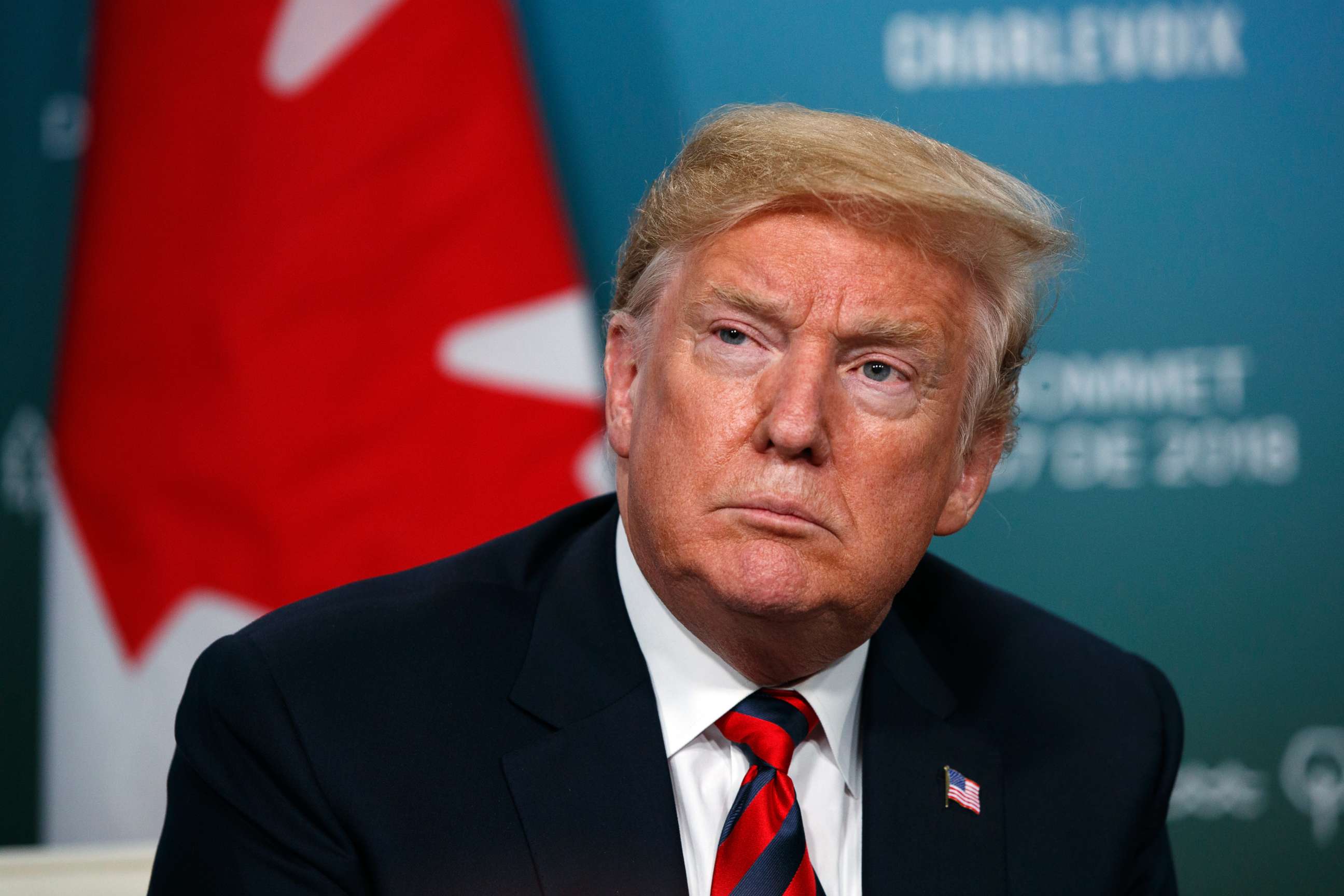
On Tuesday, Trump was more than willing to decry "Democrat-supported loopholes" as the root cause of the border crisis.
"As a result of Democrat-supported loopholes in our federal laws, most illegal immigrant families and minors from Central America who arrive unlawfully at the border cannot be detained together or removed together. Only released. These are crippling loopholes that cause family separation, which we don't want,” Trump said in pushing the blame onto Democrats.
Regardless of the confusion in Washington, Republican candidates are following Trump's lead in attempting to scapegoat their Democratic opponents.
Two Republican U.S. Senate candidates in states that Donald Trump captured on his way to the White House in 2016 -- Kevin Nicholson of Wisconsin and Patrick Morrisey of West Virginia -- are attempting to shift the blame off of Trump and onto their Democratic opponents.
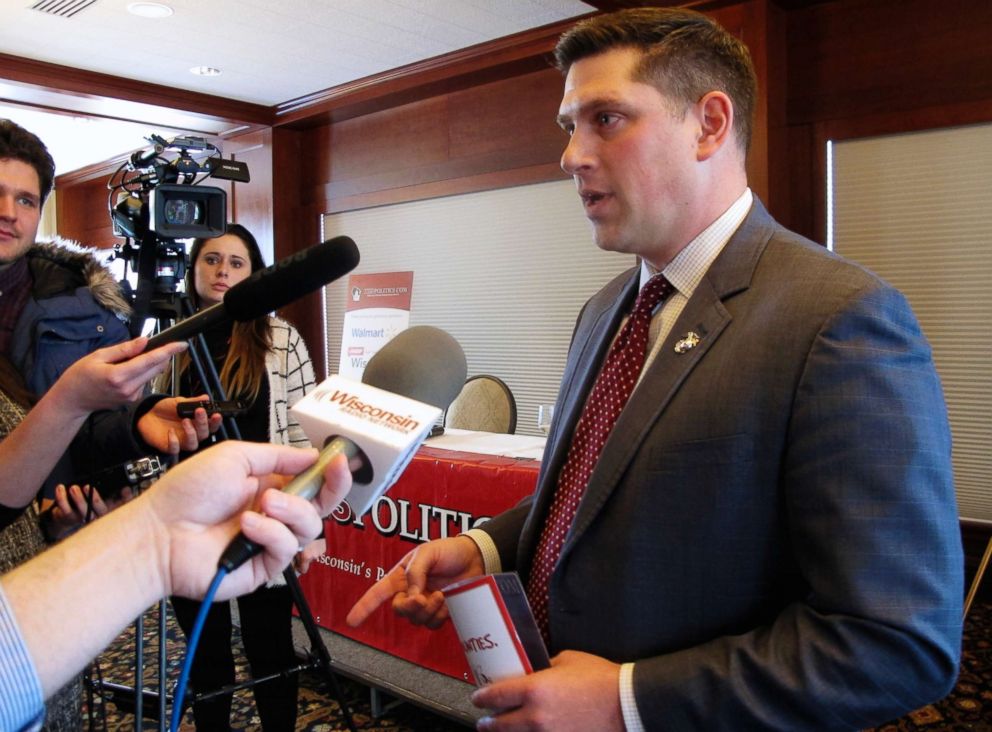
"As a father I feel great concern any time I see a child crying out of fear or desperation, anywhere in the world," Nicholson wrote in a statement Tuesday, "In this case, I'm also angry with the many entrenched Washington politicians – like Tammy Baldwin – who have worked mightily to encourage the 'catch and release' illegal immigration policies that put innocent children in this position in the first place."
Baldwin took to Twitter Tuesday to blast what she called a "inhumane Trump Administration policy."
Nicholson's main opponent for the GOP nomination in Wisconsin, state Sen. Leah Vukmir, told a local television station Monday that "there is a process that has to be upheld," when it comes to enforcing U.S. immigration law, but then issued a statement Tuesday saying, "Of course families shouldn't be separated," calling on Congress to act swiftly to resolve the issue.
Morrisey released a statement Wednesday morning attacking his opponent, Democrat Joe Manchin, for supporting the "Keep Families Together Act" authored by California Sen. Dianne Feinstein that earlier this week garnered the support of the entire Democratic caucus in the U.S. Senate.
"Joe Manchin is putting the interest of illegal immigrant criminals and the agenda of liberal Washington elites ahead of West Virginia families," Morrisey, the Attorney General of West Virginia, wrote in a statement, "Washington Democrats and Joe Manchin are offering drug cartels, gangs, and child traffickers a one-way ticket into our country with their open-borders legislation."
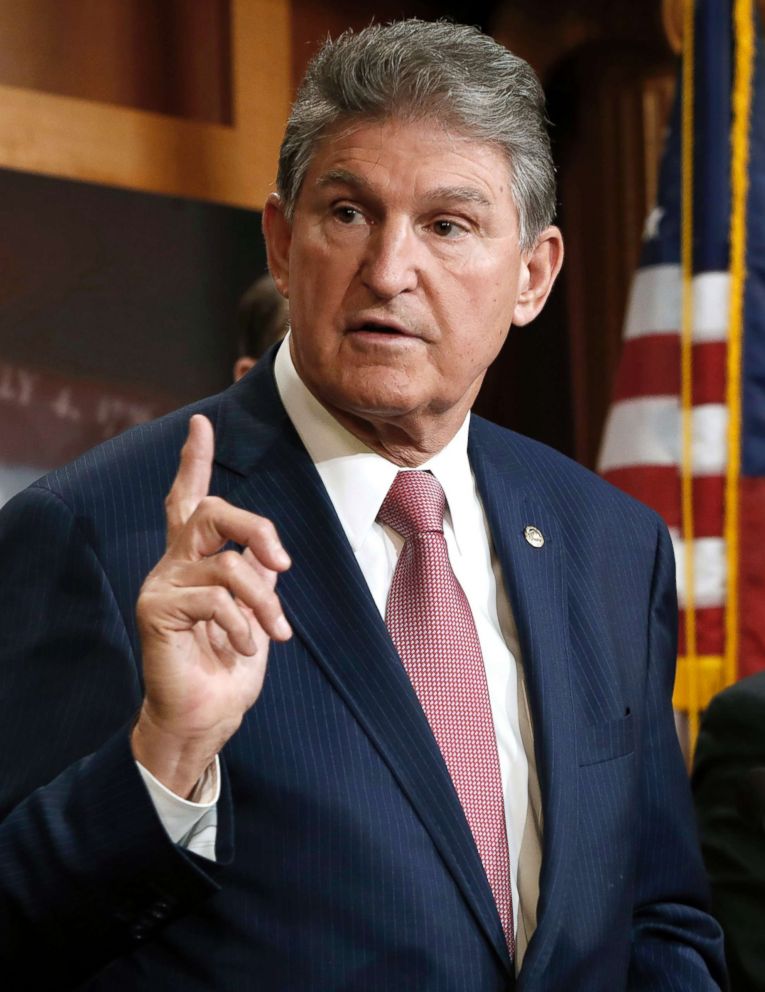
GOP Rep. Marsha Blackburn of Tennessee, a stalwart ally of President Trump that is running for the state's open U.S. Senate seat, says her "heart breaks for the families" but is attempting to shift the blame onto "liberals wouldn't pay to enforce immigration laws or build suitable facilities for asylum seekers."
"The Obama policies turned every state into a border state, every town into a border town," Blackburn added in an interview with Fox News Wednesday morning.
In condemning the family separations, Blackburn's likely Democratic opponent, former Tennessee Gov. Phil Bredesen, noted the bipartisan opposition to the Trump administration's "zero tolerance" policy and said it indicated the nation is on a "morally bankrupt path."
"This is no longer the President’s problem, or the Department of Homeland Security’s problem. It is America’s problem. Thankfully, we live in a strong nation, full of parents, faith leaders, and many others from all parts of the political spectrum who have condemned this policy," Bredesen wrote in a statement released Tuesday.
On Wednesday at a children's hospital in Knoxville, Bredesen said the issue "completely transcends partisan politics," and also cast blame on Congress for it's inability to pass a legislative solution.
"Watching what’s going on in Washington is partisanship at its worst. Everybody is spending their time covering their own rear ends by passing blame. There's still tremendous damage to unwind on the ground to reunite children with their parents to start the healing process," Bredesen said.
In Pennsylvania, another state Trump won in the 2016 election where a Democratic incumbent is battling an Trump-aligned challenger, Democratic Sen. Bob Casey attempted to turn the tables on criticism from his GOP opponent, Rep. Lou Barletta, over his support for the Feinstein bill.
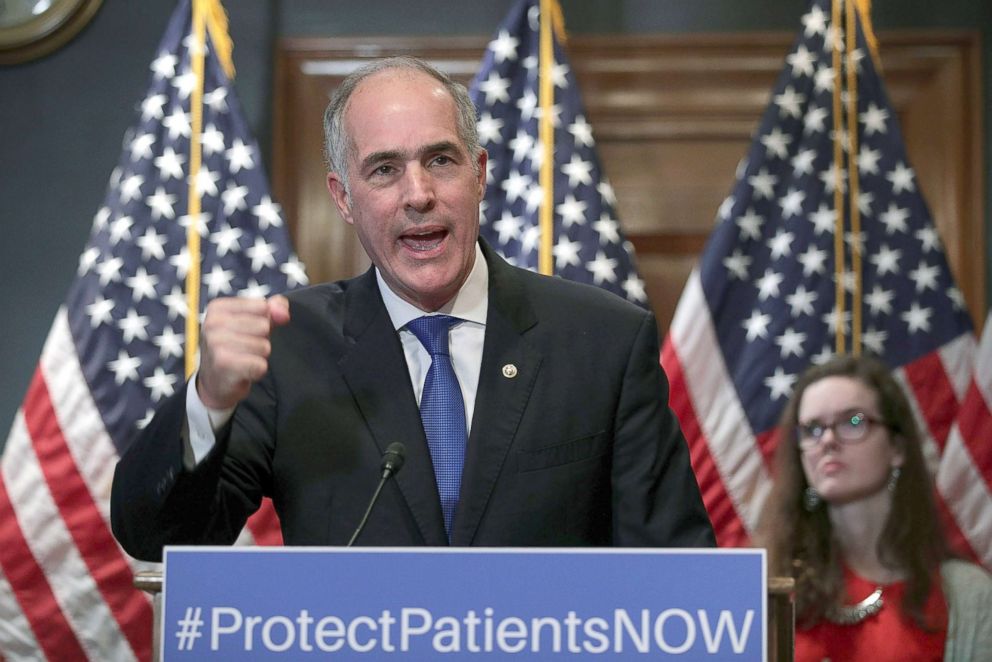
"This is a fundamental moral question far beyond partisan politics. We must reject this inhumane, cruel practice of separating children from their parents," Casey wrote in a statement released by his re-election campaign Wednesday, "Rather than attacking me or blaming Democrats, Congressman Barletta should join his Republican colleagues in demanding the Trump administration immediately end this policy."
In North Dakota, GOP Rep. Kevin Cramer's campaign went after his opponent, Democratic Sen. Heidi Heitkamp, over her support for the Feinstein-authored legislation.
"Imagine a MS-13 gang member getting arrested in North Dakota on a federal drug or weapons charge getting off scot-free because he has children traveling with him,” Rasmussen said. “Worse yet, this bad legislation could actually encourage criminals to use children as shields to prevent arrest," Cramer's Communications Director Tim Rasmussen wrote in a statement released Wednesday, "Heitkamp’s support of this bad legislation demonstrates she is more interested in gaining political points than creating strong and effective legislation."
In the border state of Arizona, a field of three Republicans vying for the open seat left by prominent Trump-critic Sen. Jeff Flake has offered varying takes on the border crisis, but all have either stayed silent steered clear of directly criticizing the President and again are directing the blame squarely at Democrats.
Former State Sen. Kelli Ward, one GOP contender, slammed both her likely Democratic opponent, Rep. Kyrsten Sinema, and Republican Rep. Martha McSally.
"Congress has repeatedly failed to address border security, one of the top issues for voters in Arizona, while my opponents Reps. Martha McSally and Kyrsten Sinema have allowed this humanitarian crisis to persist for years – under several administrations – without making any effort to fix it."
In a statement provided to ABC News Monday, Sinema called for an end to the separation of families at the border and said Congress should "stop playing politics" and find a solution to the crisis.
"This is wrong. The administration is choosing to separate families at the border; they should stop immediately," Sinema wrote, "As always, I stand ready to work with anyone to fix our broken immigration system, secure our border, and protect our communities. I call on my colleagues and the administration to stop playing politics and work together."
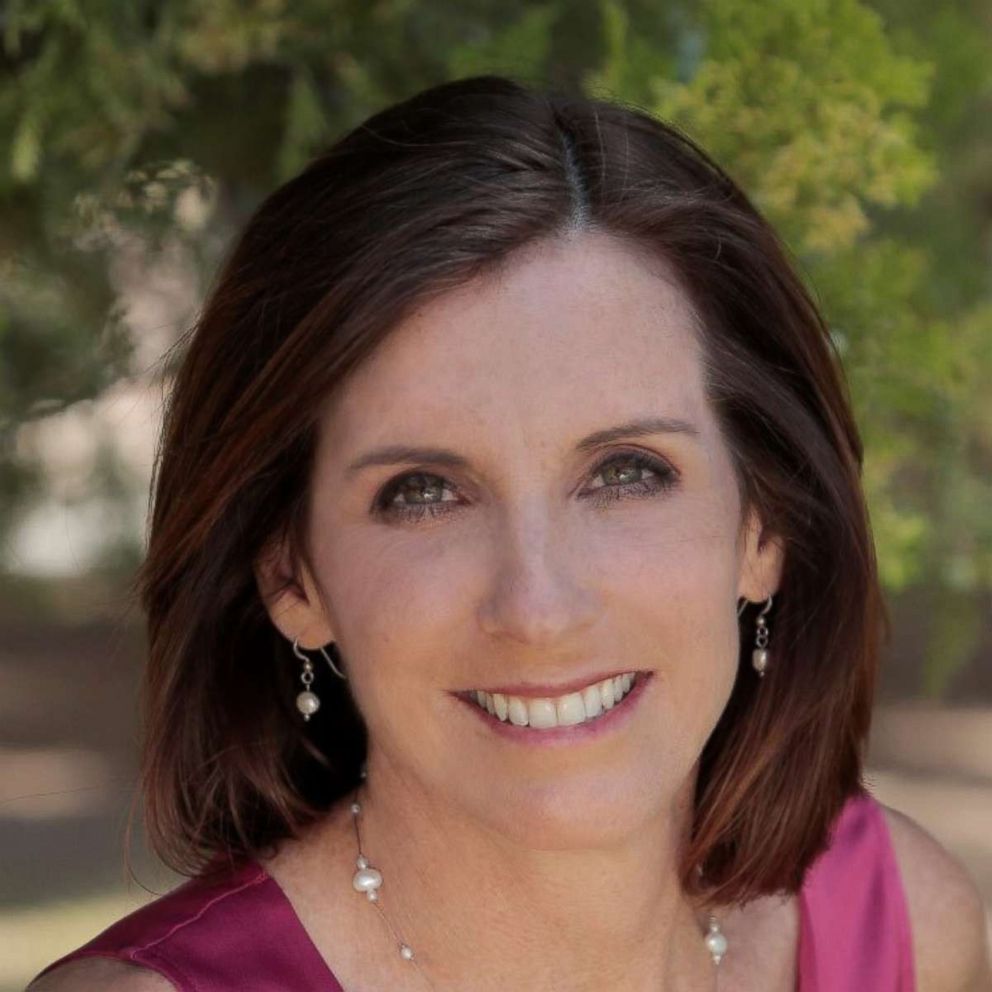
McSally, who has been straddling the difficult political line between vociferous Trump-support and broadening her appeal beyond the GOP base, released a statement Monday saying that the U.S. should "enforce our laws in a consistent and humane manner and DHS should not have to choose between enforcing the law and keeping children with their parents."
She also trumpeted a bill she has authored that allows children to stay with their parents "as they undergo due process," and that she hopes "we can get a version of my bill out of the House this week and on the President's desk immediately to address many urgent issues like this."
On Wednesday evening, she released a statement saying that the executive order signed by the President was "welcome news" and reiterated her belief that "Soon, the House of Representatives will take up immigration legislation that I’ve been working on for months."
"Congress must step up to get a solution to the President's desk," she said in the statement.
Former Maricopa County Sheriff Joe Arpaio, who was pardoned by President Trump last year after he was held in contempt of court for defying a court order to stop discriminatory immigration enforcement practices, voiced support for punishing the parents who chose to bring their children across the border.
"While Sheriff Arpaio understands and is sensitive to the issue of the children coming across and being separated from families, Arpaio asks the question; 'Why aren't we holding the parents of these kids responsible? They know there is an inherent risk when they make this journey to cross the border illegally.'" Arpaio's Communications Director Chris Hegstrom wrote in a response to an ABC News inquiry.
While the President continues to urge Congress to find a more permanent, legislative solution to the crisis, the issue remains top of mind for Republican candidates hoping to expand the party's slim 51 to 49 majority in the U.S. Senate.




